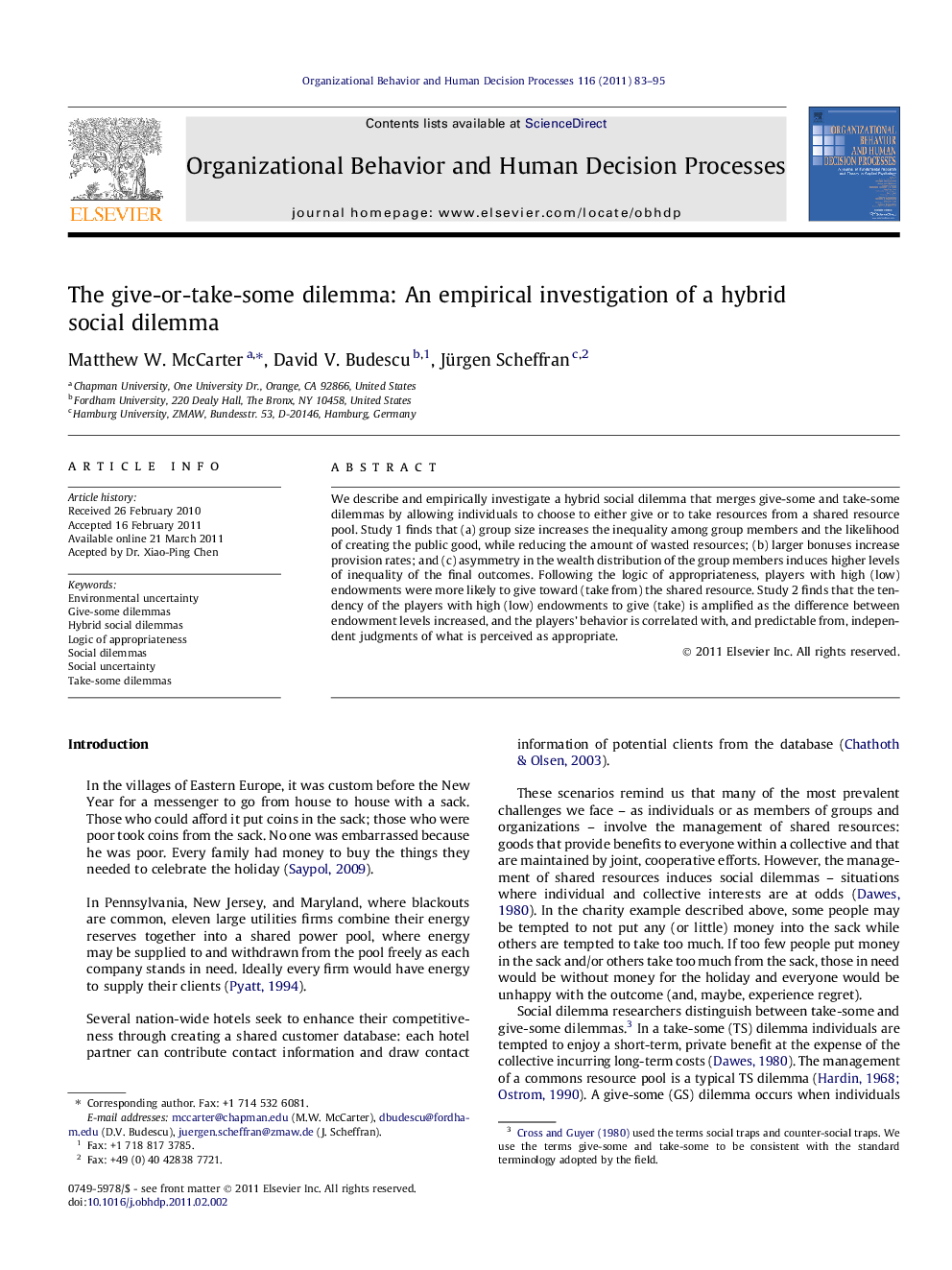| Article ID | Journal | Published Year | Pages | File Type |
|---|---|---|---|---|
| 888795 | Organizational Behavior and Human Decision Processes | 2011 | 13 Pages |
We describe and empirically investigate a hybrid social dilemma that merges give-some and take-some dilemmas by allowing individuals to choose to either give or to take resources from a shared resource pool. Study 1 finds that (a) group size increases the inequality among group members and the likelihood of creating the public good, while reducing the amount of wasted resources; (b) larger bonuses increase provision rates; and (c) asymmetry in the wealth distribution of the group members induces higher levels of inequality of the final outcomes. Following the logic of appropriateness, players with high (low) endowments were more likely to give toward (take from) the shared resource. Study 2 finds that the tendency of the players with high (low) endowments to give (take) is amplified as the difference between endowment levels increased, and the players’ behavior is correlated with, and predictable from, independent judgments of what is perceived as appropriate.
